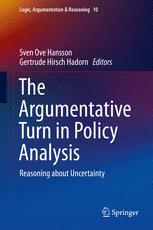

Most ebook files are in PDF format, so you can easily read them using various software such as Foxit Reader or directly on the Google Chrome browser.
Some ebook files are released by publishers in other formats such as .awz, .mobi, .epub, .fb2, etc. You may need to install specific software to read these formats on mobile/PC, such as Calibre.
Please read the tutorial at this link: https://ebookbell.com/faq
We offer FREE conversion to the popular formats you request; however, this may take some time. Therefore, right after payment, please email us, and we will try to provide the service as quickly as possible.
For some exceptional file formats or broken links (if any), please refrain from opening any disputes. Instead, email us first, and we will try to assist within a maximum of 6 hours.
EbookBell Team

0.0
0 reviewsThis book describes argumentative tools and strategies that can be used to guide policy decisions under conditions of great uncertainty. Contributing authors explore methods from philosophical analysis and in particular argumentation analysis, showing how it can be used to systematize discussions about policy issues involving great uncertainty.
The first part of the work explores how to deal in a systematic way with decision-making when there may be plural perspectives on the decision problem, along with unknown consequences of what we do. Readers will see how argumentation tools can be used for prioritizing among uncertain dangers, for determining how decisions should be framed, for choosing a suitable time frame for a decision, and for systematically choosing among different decision options. Case studies are presented in the second part of the book, showing argumentation in practice in the areas of climate geoengineering, water governance, synthetic biology, nuclear waste, and financial markets. In one example, argumentation analysis is applied to proposals to solve the climate problem with various technological manipulations of the natural climate system, such as massive dispersion of reflective aerosols into the stratosphere. Even after a thorough investigation of such a proposal, doubt remains as to whether all the potential risks have been identified. In such discussions, conventional risk analysis does not have much to contribute since it presupposes that the risks have been identified, whereas the argumentative approach to uncertainty management can be used to systematize discussions.